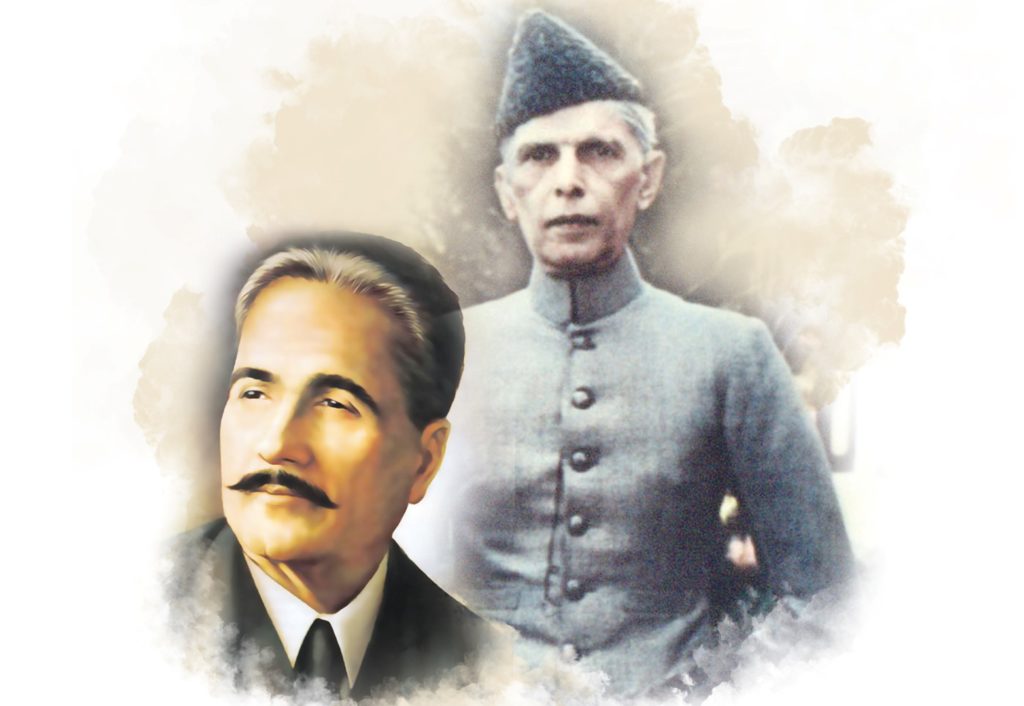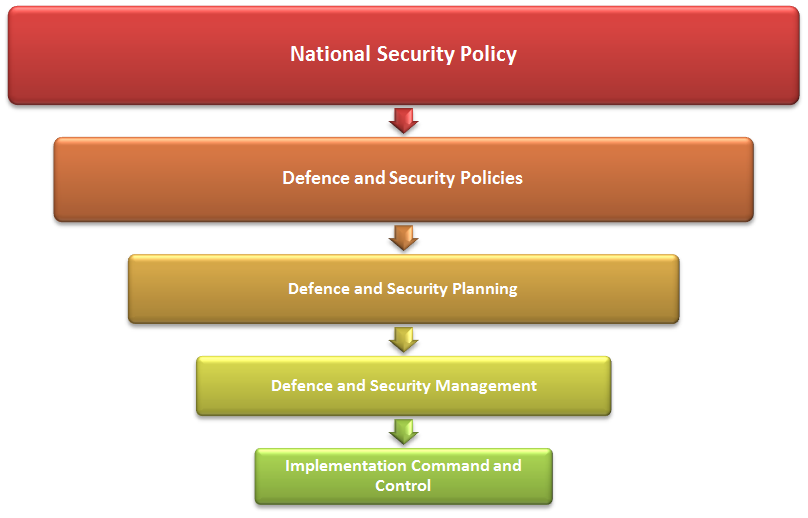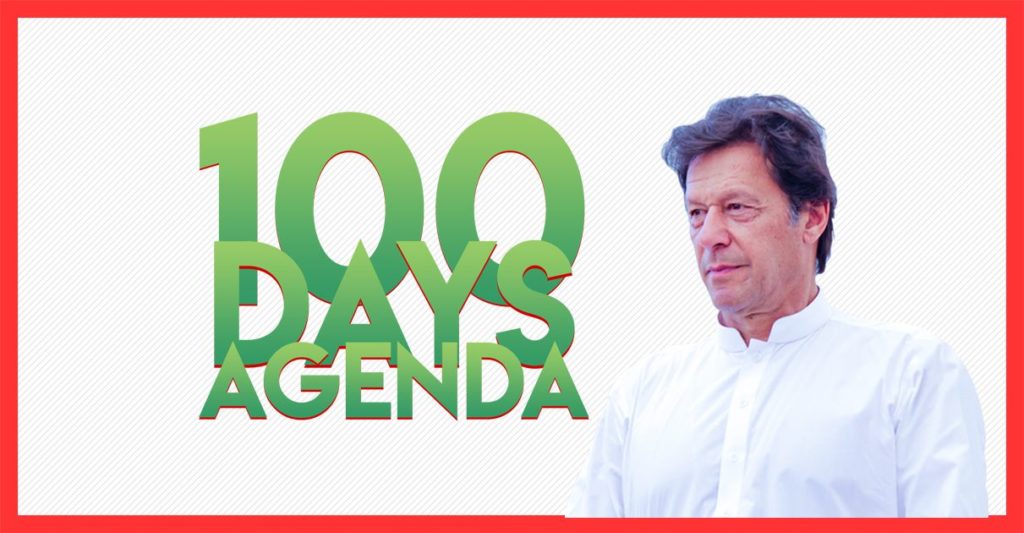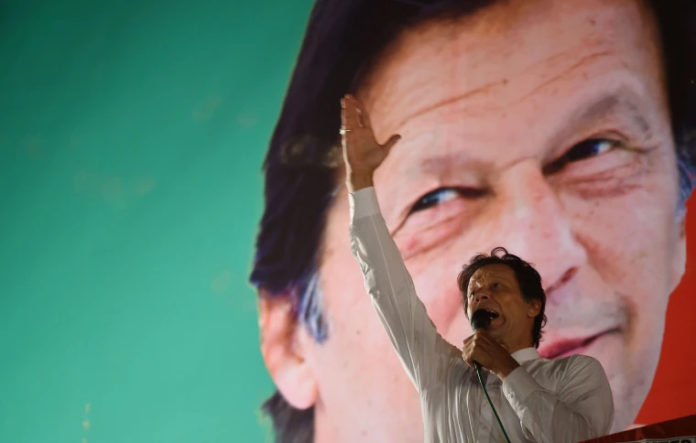The country is going through a period of severe crisis, how many times has one heard this idiom? Quite often! Many political leaders start with this as their opening gambit to convince the electorate that they are the only ones who can take Pakistan out of the current state of paralysis, calamity, and under-achievement. However, this statement was never truer as it is for today. A new government is in place but facing the same set of complex existential and security threats. Will this time be any different? Will Imran Khan’s government overcome the national security challenges being faced by Pakistan? It can! Consider the following narrative.
The Imran Khan factor
Imran Khan is now Prime Minister. He himself has said that this is the culmination of 22 years of personal struggle, a time mostly spent in the political wilderness. This alone suggests the greater tenacity of the man himself, something that has made him a hero to many a younger generation, especially those who came of age in 1992 the year Pakistan won the cricket world cup. That win is still celebrated because it was a time when cricket tournaments were scarce, the twenty-twenty format hadn’t kicked off and, there weren’t any cricket leagues such as the IPL and PSL. Without a doubt, Imran Khan was the key to lifting the world cup. It was the twilight of his career and his cricket prowess might have reduced by then but his ‘never say die’ attitude was still extensive. So much so that he expected to win the world cup when everyone told him otherwise. Ramiz Raja, the Pakistani opener recounts an incident where he, Javed Miandad and Waseem Akram all had an impromptu meeting to discuss the fact that the skipper (Imran Khan) might have gone bonkers because he alone was saying ‘we will win the world cup’, even when the whole world was laughing at them and defeat seemed to be staring the team in the face. But win they did and the rest became part of the urban folklore.
That victory was a manifestation of Imran Khan’s doctrine; “never give up, never give in”! Some might call it fate or the result of the prayers of a forlorn nation which was yearning for a miraculous victory on or off the cricket field. Others term it Karma and highlight the notion that sooner or later Pakistan was to win an international cricket tournament. Others still point to that one significant draw against England where Pakistan were skittled out for 74! And yet ended up with a draw thanks to the heavens which opened up with a deluge of rain!
Regardless of one’s philosophical leanings, the consensus is that it was mostly Imran Khan’s dogged belief in his doctrine that made all the permutations and combinations work in Pakistan’s favour. Doctrine is defined as authoritative beliefs and principles that guide one’s actions in support of objectives. It is the sole ambit of the man in charge one person, not a board. And that is the most important aspect of doctrine, it needs to stay away from the bureaucratic hurdle of consensus. Even a staunch doctrine such as ‘victory or death’ can become as soft as ‘success or a reasonable alternative’ in the hands of a committee which has a desire to agree a consensus. The Imran Khan doctrine is no different and is an accumulation of practices, convictions, and judgements experienced over the course of Imran’s lifetime.
Has this doctrine held him in good stead over the years? Of-course it has! Imran has succeeded where successive governments have failed. Pakistan didn’t have an international quality cancer hospital, he built not one but two without government assistance. Pakistan didn’t have a globally recognized university in the most deprived areas of the country, he built one in the less privileged area of Mianwali.
As Imran Khan has been elected Prime Minister on a manifesto of ‘change’ and as a challenger to the status-quo, there are many expectations of him and of his government in ‘Naya’ Pakistan. Of-course there are steep challenges ahead in the realms of finance, health, education, taxation, trade, provision of basic rights, and institutional reforms. His doctrine will come in handy to tackle these. More importantly, there is an overarching existential threat that needs to be mitigated the challenge, internally and externally, to Pakistan’s security! Therefore, Imran Khan’s doctrine of “never give up, never give in” will be the crucial, and probably missing piece of the puzzle that can respond to this supreme of tasks by rebooting Pakistan’s national security framework. This is an endeavour that can’t be taken lightly for it is one of the most complex of duties in the ambit of national service. However, at this trying and fluid period, Imran Khan is best placed to do so. Consider. He has a relatively clear mandate from the people of Pakistan. The electorate is looking for a change in direction. If nothing else, his transparency and integrity has given him a good amount of political capital. He has the novelty of not being tested before. All ingredients that can serve up a fundamental change to Pakistan’s national security framework.
All successful countries generally have one thing in common they have set up their national security framework efficiently to ward of any internal and external challenges to their continued existence. From as small a nation such as Singapore to as large a country as the US, there aren’t any exceptions. This begs the question, what exactly is an effective national security framework? And, more importantly, how can Imran Khan facilitate its reboot?
National Security Framework
The Cambridge English Dictionary defines framework as “a system of rules, ideas, or beliefs that is used to plan or decide something”. In the annals of national security, nothing can be further from this truth the national security framework does plan and decide something the nation’s continued and flourishing existence! There are four pillars to this system. The foremost is national identity. Then comes the national purpose. The penultimate pillar is national interests. While national security policy, along with strategies to execute this policy, is the final pillar of this structure. The critical requirement for the national security framework is that all the pillars are working with each other in harmony as opposed to acting as contradicting forces. If the latter happens, the national security framework can come crashing down, very quickly and very gravely!

The first pillar, national identity, is a divisive discussion at the best of times. There are different spheres of society that will have a different interpretation of what it means to be a Pakistani. However, no national security framework can ever get off the ground unless this fundamental question about national identity is settled. This is an overarching reality for all Pakistanis and must be above ethnic, religious, sectarian, and social divides. The national identity in one phrase? A Muslim yet democratic Pakistan. This is because while the creation of Pakistan is steeped in religion, the continued existence and further flourishing of Pakistan must be at the behest of all the people living within its borders. No one can understand this better than Imran Khan. He refers to Iqbal’s dream for Pakistan and Jinnah’s vision of Pakistan. At the same time, he prophesises inclusivity of all Pakistanis to further the prosperous future of Pakistan. This is a good and balanced mix of ideology to push the case for a Muslim yet democratic Pakistan. There is enough political mileage with the Prime Minister yet to get the nation behind this national identity.
Raison d’être French for reason to exist succinctly defines national purpose which is the second pillar of the national security framework and one of the most important. In Greek history, Pericles made Athenians believe in themselves by first giving them a purpose and believing in the city itself. It is no different for the Pakistani population. They must be given a purpose before great things are expected of them. If the people of a nation don’t know their common purpose, then existence is futile at best and short lived at worst. The Pakistani Constitution engrains the national purpose in the following three beliefs. One, Pakistanis are one united people regardless of race, language, culture, or religion. Two, Pakistan will be a democratic state and society based on Islamic principles of social justice and equality. Three, achieve affluence and happiness for all through the values of democracy, freedom, equality, and tolerance. Imran Khan seems to be an embodiment of a purposeful life. This is what the population sees in him thus he is well placed to start, and even conclude, a nation-wide debate on national purpose using his own achievements as inspiration. In the current climate, he is probably the only one who can ‘walk the talk’ when it comes to generating a consensus on the aforementioned national purpose.
The penultimate pillar of the national security framework is national interests and can be best expressed by the French expression raison d’état, reason of state in English. National interests are generally the goals and aspirations of a nation which can guarantee its survival. These are also what the states seek to protect or achieve in relation to each other. Different nations chart their own direction in international relations and arrange their priorities according to their defined national interests. Consequently, national interests have a very important role to play in preserving and extending nation hood. The critical aspect here is to realise that national interests build upon the national purpose and must work in harmony with it. The Brookings Institution also considers national interests to be necessary to the security and wellbeing of a nation.
Furthermore, national interests must be subjected to an exercise of prioritisation. There are four different intensity levels that can be assigned to the national interests of Pakistan. One, survival level is where a national interest is crucial for continued existence. Two, a national interest that counters a dangerous threat to the national well-being is categorised as vital. Three, major level is one which reflects serious external challenges abroad and outside of Pakistan. Four, any national interest that doesn’t encounter serious challenges but still faces irksome issues is tagged peripheral.
Thus, keeping in view the defined national purpose and previously mentioned intensity levels, the Imran Khan government should list and disseminate the following distinct national interests of Pakistan. First, Pakistan should become a nationally harmonious country a survival level national interest. Second, it should become a secure state especially with regards to its territory, citizens, and constitution a national interest related to Pakistan’s survival. Third, Pakistan needs to be a successful economy and enhance the standard of its citizens through favourable social opportunities. This is a vital level national interest. Fourth, promote a morally stable and secure world governed by the rule of law. Fifth, initiate friendships globally by acting as a democratic and credible partner. The last two being major level national interests. At such a critical juncture in the nation’s history, there is no luxury for peripheral interests! Imran Khan’s hallmark is that he speaks the truth, he should do the same when it comes to highlighting the vital and major national interests to his fellow compatriots and explain the gravity of the situation that forces virtually no peripheral interests. People respond to the truth!
The final pillar of the national security framework is the national security policy. After defining the national purpose and appropriately classifying national interests, a national security policy can be established to further this agenda. Previous discussions suggest that policy is a specific choice of direction from a myriad of options. This results in a galvanising vision of the future created by specific policy ends. For Pakistan, the following national security policy objectives must be central to Imran Khan’s government. One, exist honourably in a volatile region and ensure transparent writ of the state to protect its people from all internal and external threats. Two, convert Pakistan into an economic and social powerhouse to safeguard and increase the quality of life for all Pakistanis. Three, promote diversity, liberty, equality, and a culture of tolerance. Four, strive for regional and global peace through amicable co-habitation and adherence to international norms. In governance terms, the foreign ministry plays the dominant role in setting up and furthering these objectives. In Shah Mehmood Qureshi, Imran Khan has an articulate, able, and experienced foreign minister who can ensure that the full weight of his ministry is behind this national security policy.
The above discussion symbolises Pakistan’s national security policy in one phrase principled and peaceful survival and unswerving social and economic growth through mutual co-existence, harmonious internally and externally. Although the foreign ministry needs to perpetuate the national security policy objectives but Imran Khan in his capacity as Prime Minister will need to educate his fellow Pakistanis on this ‘one phrase’ national security policy. He did the same when he was playing cricket and kept his team aware of the overall end goal i.e. ‘we will win the world cup’. There is no reason that he can’t do the same with the Pakistani population. If people understand it, they will go to great lengths to defend it!

Core strategies to execute National Security Policy
No policy worth its salt is complete without at least some underlying core strategies that execute the policy objectives. This is doubly so for Pakistan’s national security policy if Imran Khan wishes to reinvigorate the Pakistani national security framework efficiently. Consider the following.
There needs to be a security strategy which is in line and coordinated with the national security policy. This needs to delve into the detail of meeting the internal and external security objectives as prescribed by the national security policy. The implementation component of this strategy should be the various available instruments of statecraft. These should at least include executive, legislature, judiciary, foreign ministry, defence ministry, interior ministry, education ministry and information ministry. Although National Counter Terrorism Authority (NACTA) is meant to work on counter terrorism strategy but its capacity could be leveraged to prepare, present, and implement such a national security strategy which is in harmony with the national security policy. However, Imran Khan will have to free NACTA, or any other organisation that works on the national security strategy, from the bureaucratic red-tape that hinders its function and ensure that there are no tussles of ego with various other law enforcement agencies. Nonetheless, for that to happen, an empowered and visionary national security advisor is key! This role is specifically meant to be the over-arching owner of and accountable for the national security strategy. Thus, this is something that the government needs to think long and hard about.
If government leaders setup policy, then bureaucracy renders strategy to execute that policy. It is crucial that at-least some quick, visible, and tactical reforms take place within the bureaucracy that will allow the government to fulfil its vision especially when it comes to national security. It will not be easy because for years the ‘tail has been wagging the dog’ in this case the bureaucracy has been leading the politicians. Imran Khan can turn that around by selecting the ‘right person for the job’ as he keeps on insisting so that competent people with domain knowledge of their relevant ministries can enforce their vision through a semi-compliant bureaucracy. Hence, the need for reformist leadership and not status-quo lackies. Unfortunately, and this is putting it diplomatically, Imran Khan has to choose from the given crop of parliamentarians. But one must play with the hand one is dealt with!
Imran Khan must seek mutual co-existence with the establishment. There is no requirement to wrestle the establishment on defence and foreign policy, something that the previous two governments did with disastrous results. In these two domains, peaceful co-habitation should be the order of the day. It was good to see Imran Khan and his core cabinet members, visiting the army brass. What needs to happen is a quick sit down between both parties to have a transparent discussion about the challenges facing the nation and thus banking on mutual support in facing these obstacles.
Thus, ‘Naya’ Pakistan can have it all! a national purpose leading to national interests which are furthered by an aligned national security policy along with its core strategies. While all the time being encircled by the defined national identity for Pakistan. More crucially though, the Imran Khan factor will need to play an important part if the above paradigm is to become a reality.
Nevertheless, today when Imran Khan is in power, the question is whether his doctrine of “never give up, never give in” will still benefit Pakistan and its populace? Perhaps Not. Consider.
Noble quests are easily underpinned by a noble doctrine. Running a country with many challenges, not quite so. The country is facing multiple economical, security and existential threats. The establishment is looking to continue its sublime influence over the landscape. The opposition is baying for blood and angrily rejecting the election results. Therefore, Prime Minster Imran Khan will have to walk a tight rope and learn to pick and choose his battles. Not only for his sake but more crucially for the sake of this neglected population which is expecting at least a transformation in direction even if not miraculous changes from the new government.
It is not as if there isn’t much to do! In-fact quite the opposite with such a void in general good governance and delivery competence, Imran Khan can focus on the less controversial aspects first so that he can free himself to work on the more critical exercise of rebooting the national security framework.
There is no need to endeavour unnecessarily to govern weakly that will bring him no kudos. If he can run a strong government in the centre and KPK and an efficient one in Punjab, he should be quite happy and make the most of it. His personal doctrine will help him do just that so that he can offer the people an alternate form of government where the state aims to provide fundamental rights to all its citizens as enshrined in the constitution.
While Imran Khan’s doctrine might persuade him to open too many fronts, he will still need to prioritise critical work. Water and power will need special attention to tackle the lack of rudimentary facilities provided to the general population. The need here is so dire that a national emergency might have to be invoked. This action will have many takers and is bound to not ruffle many feathers.

Even in a flawed democracy such as Pakistan, political dissent is a given and should be encouraged. Thus, Imran Khan should not waste time and energy on managing, negating, and responding to these dissenting voices. Instead, the first 100 days of his government and the exemplary track record of his delivery should do the talking. The common man needs someone who’s bigger than their speeches!
Ronald Reagan suggested, “governments have a tendency not to solve problems, only to rearrange them”. If one treats running a government as a sprint, then he was right. Though, problems can be solved when running the government is thought of as a marathon! Imran Khan will have to do something similar so that he doesn’t fall over the first hurdle but persistently hangs around to complete this journey. While his doctrine of “never give up, never give in” has worked well in the past, running a government is a different endeavour altogether. He needs to wake up to that reality and understand that he can’t fight the war at once and thus must choose his battles carefully. That is the only way he can use his personal doctrine as a catalyst to revamp Pakistan’s national security framework. For him and this nation, it would be a tragedy if he only became a foot note in history rather than creating one on his own.
Conclusion
In conclusion, although a softened version of Imran Khan’s doctrine of “never give up, never give in” will help reboot Pakistan’s national security framework but he will need to ensure two paramount and perpetual activities for this initiative to succeed.
One, he will need to use his political goodwill to ‘sell’ the idea of revamping the national security framework to his own government first and to the nation second. For this, he will require good support from the establishment and thus the reason for seeking mutual co-existence with it. Consequently, this paradigm will need to be advertised and marketed rather well. Only then every Pakistani will know what we stand for and what is our national purpose and subsequent national interests. And how the national security policy will help us further these aims for Pakistan to be a successful and vibrant nation.
Two, and the more difficult of the two tasks, the need of successive governments to stick steadfastly to these core ideals because that is the only way these can bear fruit. This will only happen with the help of a bureaucracy which at-least believes in similar ideals. This is where Imran Khan will want help from a reinvigorated and reformed bureaucracy because it remains consistent even when governments change. A change in the political setup might mean many fluctuations but there should neither be any compromise nor any variations in these principles.
In the end is it a tough ask to reboot Pakistan’s national security framework? Absolutely! Will the Imran Khan factor help? Most definitely! Will this result in a strengthened and prosperous Pakistan of the future? Count on it!




